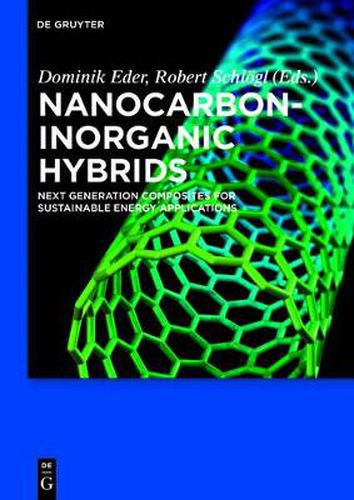Readings Newsletter
Become a Readings Member to make your shopping experience even easier.
Sign in or sign up for free!
You’re not far away from qualifying for FREE standard shipping within Australia
You’ve qualified for FREE standard shipping within Australia
The cart is loading…






Nanocarbon-Inorganic Hybrids is dedicated exclusively to the new family of functional materials, covering a multidisciplinary research field that combines materials science, chemistry and physics with nanotechnology and applied energy science. It provides a concise introduction into fundamental principles of nanocarbons, defines hybrids and composites, explains the physics behind sustainability, and illustrates requirements for successful implementation in energy applications. It further reviews the current research on developing concepts for designing nanocarbon hybrids, unravels mechanistic details of interfacial electron transfer processes and highlights future challenges and perspectives associated with exploiting these exciting new materials in commercial energy applications and beyond. This comprehensively written book is indispensable for Master and PhD students seeking to become familiar with a modern fi eld of knowledge-driven material science as well as for senior researchers and industrial staff scientists who explore the frontiers of knowledge.
$9.00 standard shipping within Australia
FREE standard shipping within Australia for orders over $100.00
Express & International shipping calculated at checkout
Nanocarbon-Inorganic Hybrids is dedicated exclusively to the new family of functional materials, covering a multidisciplinary research field that combines materials science, chemistry and physics with nanotechnology and applied energy science. It provides a concise introduction into fundamental principles of nanocarbons, defines hybrids and composites, explains the physics behind sustainability, and illustrates requirements for successful implementation in energy applications. It further reviews the current research on developing concepts for designing nanocarbon hybrids, unravels mechanistic details of interfacial electron transfer processes and highlights future challenges and perspectives associated with exploiting these exciting new materials in commercial energy applications and beyond. This comprehensively written book is indispensable for Master and PhD students seeking to become familiar with a modern fi eld of knowledge-driven material science as well as for senior researchers and industrial staff scientists who explore the frontiers of knowledge.